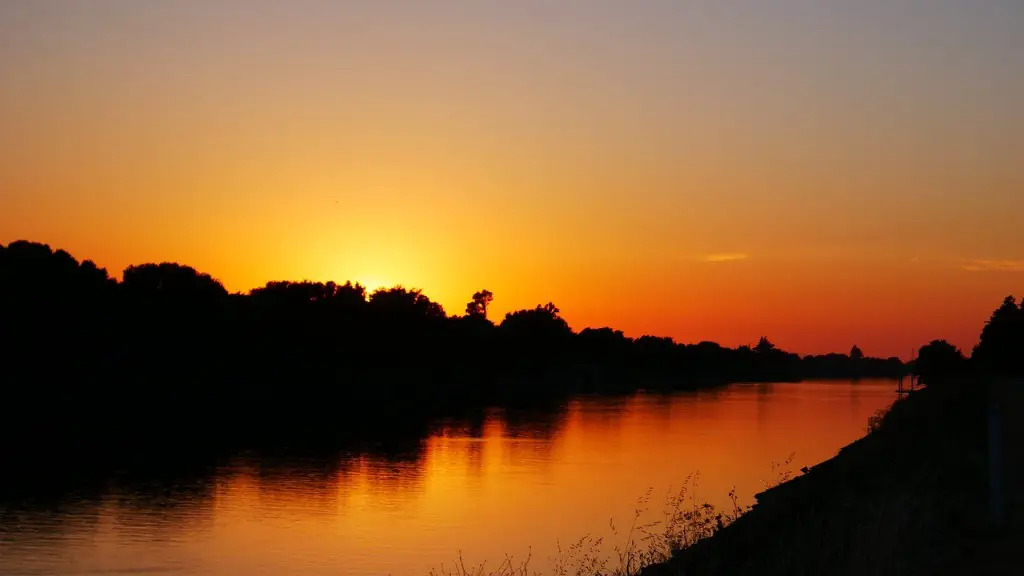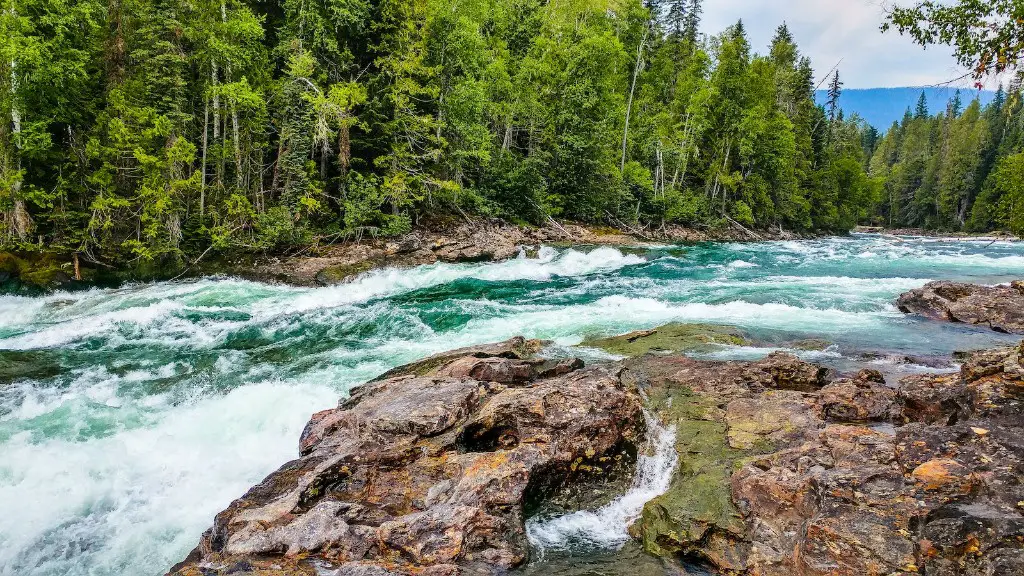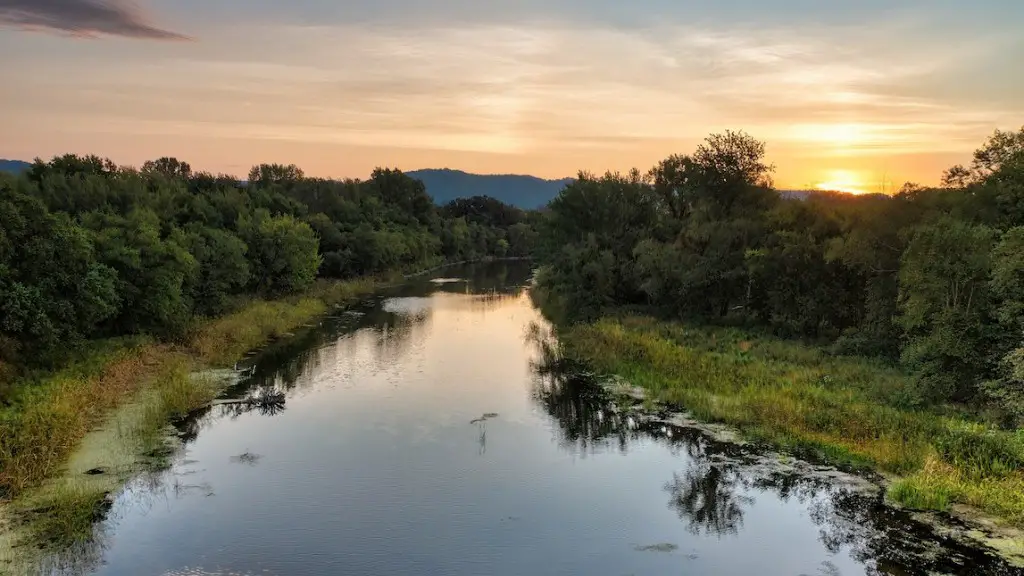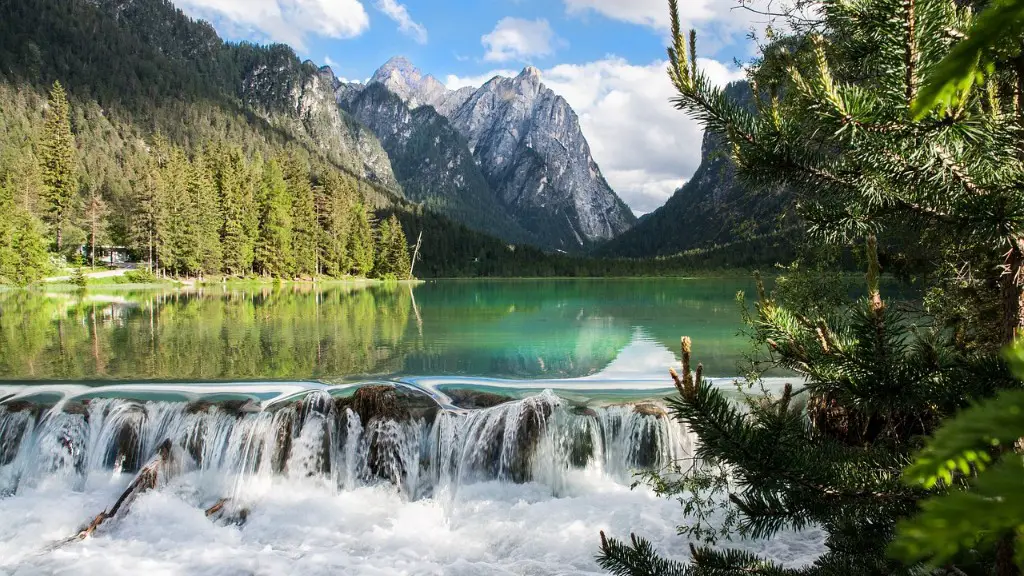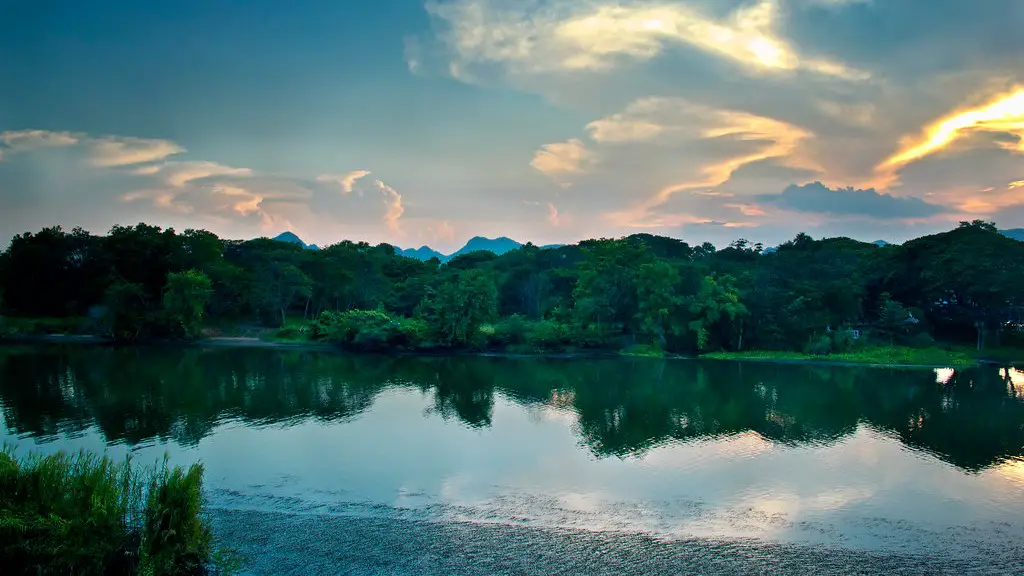The Nile River is one of Africa’s most important water sources and has been used by Egyptians for millennia. In fact, it is one of the oldest rivers in the world, with some evidence of it existing as far back as 4,000 BC. The river has been a crucial resource for many generations, playing an essential role in developing and sustaining the Egyptian civilization. It is often thought that the ancient Egyptians were only able to develop their civilization with the help of the Nile’s regular flooding due to its unique geography.
The Nile has been a key source of water for many of the country’s population. Ancient Egyptians were dependent on the river for survival, relying on it for everything from drinking water to irrigation for their crops. For centuries, Egyptian farmers used the water from the Nile to irrigate their land and grow a variety of crops. The river’s water was also used for the construction of dams and canals, allowing for the efficient distribution of vital resources. This allowed Egyptians to grow their grain and food yields over the years, building up their civilization.
The Nile also played a huge role in trade in ancient Egypt. Much of Egypt’s trading was done via the river and boats, making it essential for merchants who wanted to move goods between different cities. This created an important economic link between Egypt and the rest of Africa. Egyptian ships were also used to transport resources, such as gold and valuable stones, which were exported from Egypt and traded with different societies. These resources were often in short supply in other parts of Africa, making Egypt a valuable trading partner.
The Nile also played an important part in transportation and communication. For example, most of the major cities in Egypt were built on the banks of the rivers, making it easier for people to move between them. This allowed for efficient delivery of news, goods and services, as well as allowing different parts of the country to be more easily connected. It also enabled the Pharaohs to send messages quickly and across great distances, which was a major part of their ability to control and grow their empires.
The Nile’s importance to the ancient Egyptians is hard to overstate. It is an invaluable water source that has allowed them to build a civilization from almost nothing. By harnessing the power of the river, they were able to grow their economy and establish trade relations with other cultures. It allowed them to conduct large-scale transportation projects, enabling them to construct powerful armies and develop some of the earliest forms of infrastructure. In short, the Nile River was crucial in helping Egypt become one of the most powerful and advanced civilizations in the world.
Impact of the Nile on the People
The Nile’s impact on the people of Egypt goes far beyond just providing a water source. It has long been a symbol of the nation, a source of identity and pride for many of its citizens. In ancient times, the river was worshipped and revered as a god due to its importance. Even today, the Nile is seen as a blessing and something that binds the Egyptians together. It has also been central to many religious ceremonies and festivals, allowing a deep connection to be formed with the river.
On a more practical level, the Nile has been hugely beneficial to the people of Egypt, providing clean water and the means to irrigate crops. This, in turn, has helped to protect them from famine and poverty, allowing them to build up a flourishing society. It has also provided a source of employment and opportunities for many, creating an important lifeline for those who live near or around the Nile.
In recent years, the Nile has come under considerable ecologic stress. The demands of modern life and the need for ever larger amounts of water have put a strain on the river’s resources. This has led to some worrying changes in the ecosystem, with levels of pollutants in the river increasing significantly.
Despite these problems, the Nile remains an essential part of life in Egypt. It has been a central part of their civilization for generations, providing a lifeline for its people. Going forward, it will be critical for the Egyptian people to find ways to protect and preserve the river, as it is an integral part of their identity and future.
Climate Change and the Nile
Climate change is a major issue facing the Nile, with rising temperatures and changing rainfall patterns leading to an increase in river flow. Studies have found that the rate of increase in temperature has been higher along the Nile basin than elsewhere in the world, leading to an increase in average river flows. This could have devastating effects on the environment and local communities, who depend on the Nile for their water supply. In the long term, it is likely that the effects of climate change could be catastrophic for the surrounding areas.
In addition, climate change is likely to cause unpredictable changes to the Nile’s water levels, leading to drastic fluctuations in river flows. These could have a wide-reaching impact on agriculture and energy generation, as well as on the local infrastructure and environment. The changes in rainfall could also lead to more severe floods, which could cause severe damage and loss of life.
With the effects of climate change likely to worsen over time, it is essential that the Egyptian government takes steps to protect the Nile. This could involve introducing water management strategies, such as reducing the use of water in agriculture, installing artificial dams and preventing water wastage. Such measures could help to reduce the impact of climate change, while also protecting the river and its resources.
Environmental Challenges Facing the Nile
In addition to climate change, the Nile is facing a number of other environmental challenges. One of the major concerns is overfishing, with increasing levels of fishing leading to over-exploitation of the river’s resources. This has caused serious damage to fish stocks, leading to a decrease in the number of fish in the Nile. This in turn has had a knock-on effect on the livelihoods of many communities, who rely on fishing for income.
Another major environmental challenge facing the Nile is pollution. The river’s waters have been polluted by a variety of sources, including agricultural run-off and industrial effluents. This has led to a decrease in water quality, with levels of pollutants such as nitrates and toxic metals increasing to dangerous levels. This has a huge impact on the local environment, with the polluted waters leading to a decrease in biodiversity and a decrease in oxygen levels.
The most recent threat facing the Nile is increasing levels of sedimentation. This is a result of the erosion of soil due to heavy rainfall and is having a detrimental effect on the river. It is causing deposits of sediment to build up on the riverbed, leading to a decrease in the amount of water that can flow through the river. This is having a huge impact on the local environment, leading to a decrease in fish stocks and an increase in waterborne diseases.
The Nile Today
Despite the environmental challenges facing the Nile, it remains an vital part of life in Egypt. It is still used for irrigation and transportation, while also providing a source of drinking water for many communities. The river is a key source of fish, allowing for a source of income for those who live and work in the region. It is also a popular destination for tourists, allowing for people to explore a part of the world steeped in history.
The Egyptian government has taken steps to protect the river, introducing regulations to reduce water wastage and to prevent overfishing. There have also been some ambitious plans to improve the water quality of the river and to reduce sedimentation. The government is actively engaged in the Sustainable Development Goals, with projects such as the Sinai Desert Development Initiative providing an opportunity to help protect the environment and the resources of the Nile.
The future of the Nile is uncertain, with a number of environmental and economic challenges facing the river. It is essential that steps are taken to protect this valuable resource and to ensure its sustainability for future generations. With the right measures in place, it is possible that the Nile could remain an essential part of life in Egypt for a long time to come.
Conservation Efforts and the Nile
Conservation of the Nile has become an important priority for the Egyptian government, who have taken a number of steps to protect the river and its biodiversity. These have included the introduction of strict regulations on fishing and pollution, as well as the designation of certain areas as nature reserves. There have also been large-scale reforestation initiatives in parts of the basin, which have been aimed at protecting the river from soil erosion.
The government has also put in place a number of measures to reduce water wastage and to improve access to clean water. This has included the introduction of water tariffs, which aim to encourage people to use water more responsibly. There have also been a number of projects implemented to improve the efficiency of irrigation, including the setting up of micro-dams, drip irrigations systems and aquifer recharge systems.
The Egyptian government is also working with international organisations, such as the World Wildlife Fund, to promote conservation and sustainable development on the Nile. This includes initiatives such as the Nile Task Force, which is working to coordinate sustainable river management across the nine Nile states. There are also programmes in place to support local communities, such as the Nile Neighbours project, which provides education and training in sustainable fishing and farming practices.
Conclusion
The Nile River has been a source of sustenance and wealth for the people of Egypt for millennia. Its importance to the country cannot be overstated and it is essential that steps are taken to protect this precious resource. The Egyptian government has already taken a number of steps to conserve and protect the river, with promising results. Going forward, it will be important for the international community to work together to ensure the sustainability of the Nile and its resources for future generations.
